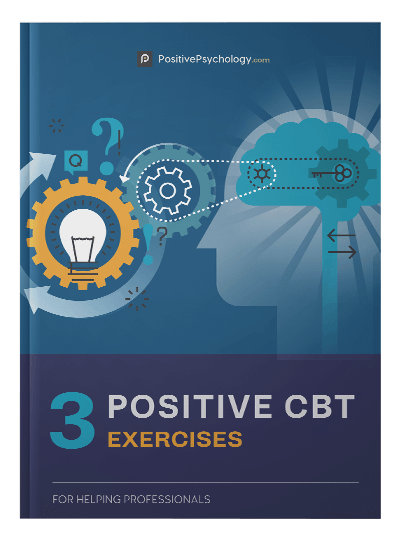Does Hypnotherapy Really Work? 10+ Scientific Findings
 Hypnosis is a deep state of relaxation, focus, and increased suggestibility.
Hypnosis is a deep state of relaxation, focus, and increased suggestibility.
Yet, it is not exceptional.
We regularly find ourselves lost in thought, adrift in music, and immersed in work. The difference is that during hypnotherapy, a therapist guides the client to the new mental state.
Once there, the professional uses hypnosis to help the individual overcome phobias, manage their weight, and better handle stress (American Psychological Association, 2020).
This article explores the science behind the claims of hypnotherapy. We look at existing research areas and uncover how hypnotherapy can help us as therapists improve our clients’ lives.
Before you continue, you might like to download three Positive Psychology Exercises for free. These science-based exercises explore fundamental aspects of positive psychology, including strengths, values, and self-compassion, and will give you the tools to enhance the wellbeing of your clients, students, or employees.
This Article Contains:
How Do Hypnosis and Hypnotherapy Work?
While records go back over 3,000 years, hypnosis was made famous as a medical treatment in the 1700s by Franz Mesmer. Mesmerism, as it became known, was later debunked and Mesmer denounced as a fraud (Thomson, 2019).
In the years since, the use of hypnosis by certified hypnotherapists has gained greater acceptance in mainstream healthcare. Research has confirmed its value in treating multiple conditions such as stress, anxiety, irritable bowel syndrome, and chronic pain.
With increasing recognition of the problems caused by opioid addiction, hypnosis offers a practical approach to managing pain with no apparent side effects (Klein, 2018). And new treatments are crucial. The U.S. Centers of Disease Control and Prevention (2020) reported an average of 41 deaths each day involving prescription opioids in 2018.
But how does hypnosis work?
While we may have seen hypnotized volunteers acting like chickens on stage, their behavior results from peer pressure and compliance with authority rather than hypnotism (Thomson, 2019). Hypnosis is not a means for taking over someone else’s mind and turning people into something they are not.
Despite varying definitions, the practice of hypnosis often begins with the visualization of a calming image, continues with a deepening procedure, then, finally, introduces affirmations. The treatment can be performed with a trained hypnotherapist’s help, yet it can be equally beneficial through self-hypnosis (Marchant, 2011).
Because of research and improved training and certification, hypnosis is no longer considered a fringe treatment. It is now promoted by the American Psychological Association (2020) as a therapy beneficial for “pain, anxiety, and mood disorders,” while helping people change negative habits such as smoking.
Perhaps surprisingly, hypnosis has been in use since the 1990s as an alternative to general anesthesia. The patient is given mild sedation, such as a local anesthetic, then guided to focus on their inner world and, through breathing techniques, led to a safe place (Thomson, 2019).
So, what happens when people enter this altered state of mind?
Research suggests there are several stages of hypnosis.
The initial relaxation element of hypnotherapy starts by dampening down the activity of the frontal cortex. Limiting the effectiveness of this area of the brain, central to attention, planning, and making decisions, increases activity in other areas engaged in filtering and integrating information.
We become more open to information, more suggestible, and capable of creating more intense sensations in our minds (Thomson, 2019).
A fascinating study in 2006 found that the brains of hypnotized individuals who were asked to imagine pleasant memories responded as if the experiences were real. The parts of the brain involved in movement and sensation became more active (Faymonville, Boly, & Laureys, 2006).
What Is It Used for According to Research?

Combined treatment of anxiety and phobias
Cognitive-behavioral therapy (CBT) and hypnotherapy have both proven successful in treating anxiety. And, as they share the use of both imagery and relaxation, there is the potential for an integrated approach.
When these treatments are combined, cognitive-behavioral hypnotherapy (CBH) can improve the management of anxiety disorders and phobias (Golden, 2012).
Research has shown CBH to be successful at treating:
- General anxiety disorder
- Job interview anxiety
- Test anxiety
- Airplane phobia
- School phobia
- Public speaking anxiety
- Agoraphobia
- Sexual performance anxiety
- Post-traumatic stress disorder
Cessation of smoking
Despite limited scientific evidence regarding its effectiveness, hypnotherapy is popular as a tool for stopping smoking. However, it is unclear whether hypnosis strengthens the will to cease the habit or if it lowers the desire to continue (Barnes, McRobbie, Dong, Walker, & Hartmann-Boyce, 2019).
In their 2019 review including 14 studies and 1,926 participants, Barnes et al. found hypnotherapy interventions to be as effective as other forms of behavioral support six months after treatment.
While hypnotherapy helped people quit, it was unclear whether it was any more beneficial than other approaches.
Managing weight loss
Early research into the effectiveness of hypnotherapy in weight loss and weight management has had mixed findings.
However, a more recent review including seven research studies suggested that hypnotherapy improved weight reduction, benefited participants’ quality of life, and improved eating behavior during and after treatment. One study also identified increased physical activity in the hypnotized group (Barabasz, 2007; Roslim et al., 2020).
While more high-quality research is required to understand the most appropriate therapy interventions and their effectiveness, hypnosis appears to offer a treatment worthy of further attention.
Improving sleep and overcoming sleep disorders
Sleep problems are common in the adult population, affecting learning, cognition, and mental and physical wellbeing.
Hypnosis, in addition to being useful for treating pain and relieving cancer treatment side effects, is also a promising standalone treatment for sleep disturbance, potentially avoiding the need for pharmacological intervention (Chamine, Atchley, & Oken, 2018).
Research comparing multiple intervention strategies, including sleep hygiene, relaxation, mindfulness, and hypnotherapy, found that CBT was an effective treatment. However, because of hypnotherapy’s promising results (improving both sleep and mental health), researchers suggest combining approaches to maximize the benefits (Friedrich & Schlarb, 2017).
Hypnotherapy for alcoholism
While hypnotherapy is used as a treatment for ongoing addiction to alcohol, there is limited research to confirm its effectiveness.
However, a 2019 study involving a six-week-long intervention with both group therapy and individual therapy sessions found hypnosis to be as effective as motivational interviewing in patients with long-term histories of alcohol abuse.
A year after the intervention, both groups showed a significant reduction in alcohol consumption (Shestopal & Bramness, 2019).
Does Hypnotherapy Work? 7 Scientific Findings
While some scientists still regard hypnosis with mistrust, it has proven useful in clinical settings and insightful in research into mental processes such as “sensation, perception, learning, memory, and physiology” (Faymonville et al., 2006).
Hypnosis is seen as a heightened state of attention, concentration, and inner absorption, with reduced awareness of external stimuli.
And such immersion is not unique to hypnotic states. Most of us have experienced deep engagement with a task at hand and failed to notice time passing and light fading.
Hypnosis, however, requires three components (Faymonville et al., 2006):
- Absorption – to become fully involved in the imaginative experience
- Dissociation – the separation of behavioral components typically processed together, such as being both an actor and an observer
- Suggestibility – the increased tendency to “comply with hypnotic instructions”
While hypnotherapy appears promising as a treatment for multiple issues that determine physical and psychological health, much of the research seems flawed because of poor trial design. Therefore, further high-quality studies are required to better understand its potential to improve chronic pain, depression, sleep, and eating disorders (Chamine et al., 2018).
So, does hypnotherapy really work?
Yes, science has confirmed that hypnotherapy can change our perception and behavior.
Sense of who we are
A perceptual illusion highlights how our susceptibility to being hypnotized affects our self-perception.
In a famous experiment known as the rubber hand illusion, participants watch a rubber hand being stroked while their own remains hidden. Surprisingly, the individual feels a sense of ownership over the clearly fake hand.
When the experiment was reproduced, it was found that those more easily hypnotized had an increased degree of ownership of the rubber hand and a more modifiable sense of body image (Fiorio, Modenese, & Cesari, 2020).
Validation of hypnotherapy as a treatment
Increasingly, research has shown the critical role that hypnosis can play in treating psychological and physiological problems including the following conditions:
Pain
Hypnotized volunteers are up to 50% more capable of handling painful stimuli (Faymonville et al., 2006). Scans reveal that hypnosis can lower activity in the brain’s anterior cingulate cortex, linking sensory stimuli to emotional and behavioral responses, and switch off pain signals.
Some studies suggest that hypnosis is more effective than standard medical care when used to reduce pain during labor and childbirth (Landolt & Milling, 2011).
Gastrointestinal
Gastrointestinal disorders have a significant impact on the quality of life of children. And despite being recognized as the product of the interaction of mind–brain–gut, standard medical treatments offer little relief.
However, hypnosis, particularly when explained to the patient before treatment to build trust, appears to reduce pain perception successfully (Mahler, 2015).
Dermatological
Hypnosis is also proving successful as a treatment for skin disorders and has been used in dermatology to reduce habits such as scratching while promoting healing.
Without side effects, such treatment, along with meditation and biofeedback, can have positive results where others have failed (Shenefelt, 2017).
Depression
Hypnosis is increasingly used as a treatment for depression and is as effective at relieving symptoms of depression as psychological interventions attempting to treat patterns of distorted cognition (Milling, Valentine, McCarley, & LoStimolo, 2018).
Hypnosis appears to help in several ways. By reducing the symptoms, it helps build coping skills, shifts focus from feelings to thoughts, and can help reframe difficult situations.
Stress
Virtual reality (VR) and augmented reality (AR) have shown their worth in therapy, particularly in the successful treatment of phobias. When combined with hypnosis, VR and AR appear to improve the outcome of treatments for stress. They offer an exciting field for research and the potential for new treatment protocols (Zhao, You, Shi, & Gan, 2015).
Surgery
Hypnosis offers practical and beneficial opportunities for helping patients undergoing treatment for cancer.
When given during the perioperative period, between deciding to have surgery and the procedure itself, hypnotherapy has been shown to reduce pre-op distress, anxiety, and postoperative pain.
Not only is it inexpensive, but it improves patient comfort and reduces recovery time from anesthesia (Potié, Roelants, Pospiech, Momeni, & Watremez, 2016; Faymonville et al., 2006).
Using Hypnotherapy in Counseling: 3 Evidence-Based Results

Mindful hypnotherapy
Despite mindfulness being a useful intervention for anxiety and stress, it can be time intensive and does not have superior results to CBT (Olendzki, Elkins, Slonena, Hung, & Rhodes, 2020).
Therefore, combined treatments may be more effective, requiring fewer and shorter sessions.
“Mindfulness targets a shift in the relationship toward experience, whereas the target of hypnosis is a shift in the experience itself,” says Nicholas Olendzki. Yet, they both offer the experience of an enhanced body connection through focus and imagery.
When combined as mindful hypnotherapy, participants reported the “intervention to be highly palatable and their adherence to home practice was exceptional.” The new combined technique also leads to a significant reduction in perceived stress (Olendzki et al., 2020).
Cognitive hypnotherapy
When combined with other psychotherapies, hypnotherapy has varying degrees of success, writes Assen Alladin (2012) from the University of Calgary, Canada.
Instead, the assimilative model of psychotherapy keeps psychotherapy central while incorporating other techniques to create fresh approaches. For example, cognitive hypnotherapy (CH) uses both imagery and relaxation, combining hypnotherapy and psychotherapy benefits.
Compared with nonhypnotic treatment, CH was found to be more successful, particularly for weight management (Alladin, 2012).
Post-traumatic stress disorder
Post-traumatic stress disorder results from major traumatic events and can profoundly affect quality of life.
Mounting evidence suggests that hypnotherapy can provide better immediate and long-term relief from symptoms such as re-experiencing traumatic memories than psychotherapy alone (Rotaru & Rusu, 2015).
Hypnosis, finally explained – Ben Cale
PositivePsychology.com’s Relevant Resources
Our toolkit offers valuable therapy worksheets, exercises, and tools for visualization, mindfulness, and relaxation techniques.
- The Five Senses Worksheet outlines a useful technique for cultivating mindfulness in moments where formal mindfulness practice such as meditation might not be practical and can facilitate relaxation similar to the first steps of hypnotherapy.
- Anchor Breathing promotes relaxation by extending inhalation and exhalation to reduce respiration frequency while maximizing the amount of oxygen in the blood.
- The Self-Talk Exercise helps prevent self-criticism that typically reinforces negative events and instead encourages us to accept our imperfections.
- Clients can assess the extent to which they struggle or accept their negative feelings and thoughts with this Thoughts and Feelings – Struggle or Acceptance exercise.
- The Basic Needs Satisfaction in General Scale is useful for uncovering our psychological needs and connecting to the emotional reactions faced during a difficult life situation.
If you’re looking for more science-based ways to help others enhance their wellbeing, this signature collection contains 17 validated positive psychology tools for practitioners. Use them to help others flourish and thrive.
A Take-Home Message
Although controversial, hypnosis is now widely accepted as a technique for helping people change their habits, manage pain, overcome phobias, and deal with depression and anxiety (Milling et al., 2018).
Using techniques designed for deep relaxation and focus encourages susceptibility to hypnotic instructions. Affirmations can guide clients to change unhelpful ways of thinking or manage unwanted sensations such as pain.
The trance-like state is not unnatural and can exist outside of hypnosis during times of extreme focus. Yet, despite on-stage stunts, it cannot make people do things beyond their will.
Hypnotherapy is considered a safe practice when performed by trained practitioners and is becoming more mainstream in treating physical and mental health (Thomson, 2019).
According to considerable recent research, guided hypnosis appears valuable in clinical settings, and self-hypnosis appears equally effective at managing conditions such as irritable bowel syndrome (Marchant, 2011).
While hypnotherapy works as a standalone treatment, it combines effortlessly with other forms of therapy. Therefore, hypnosis can form part of any toolkit of therapies for mental wellbeing practitioners to help clients with conditions that have so far been untreatable (Whorwell, 2008).
We hope you enjoyed reading this article. Don’t forget to download three Positive Psychology Exercises for free.
- Alladin, A. (2012). Cognitive hypnotherapy: A new vision and strategy for research and practice. American Journal of Clinical Hypnosis, 54(4), 249–262.
- American Psychological Association. (2020). Hypnosis. Retrieved January 4, 2021, from https://www.apa.org/topics/hypnosis
- Barabasz, M. (2007). Efficacy of hypnotherapy in the treatment of eating disorders. International Journal of Clinical and Experimental Hypnosis, 55(3), 318–335.
- Barnes, J., McRobbie, H., Dong, C. Y., Walker, N., & Hartmann-Boyce, J. (2019). Hypnotherapy for smoking cessation. The Cochrane Database of Systematic Reviews, 6(6).
- Centers for Disease Control and Prevention. (2020). Overdose death maps. Retrieved January 4, 2021, from https://www.cdc.gov/drugoverdose/data/prescribing/overdose-death-maps.html
- Chamine, I., Atchley, R., & Oken, B. S. (2018). Hypnosis intervention effects on sleep outcomes: A systematic review. Journal of Clinical Sleep Medicine, 14(2), 271–283.
- Faymonville, M. E., Boly, M., & Laureys, S. (2006). Functional neuroanatomy of the hypnotic state. Journal of Physiology-Paris, 99(4–6), 463–469.
- Fiorio, M., Modenese, M., & Cesari, P. (2020). The rubber hand illusion in hypnosis provides new insights into the sense of body ownership. Scientific Reports, 10(1).
- Friedrich, A., & Schlarb, A. A. (2017). Let’s talk about sleep: A systematic review of psychological interventions to improve sleep in college students. Journal of Sleep Research, 27(1), 4–22.
- Golden, W. L. (2012). Cognitive hypnotherapy for anxiety disorders. American Journal of Clinical Hypnosis, 54(4), 263–274.
- Klein, A. (2018). Opioid crisis: Powerful but non-addictive drug could replace morphine. New Scientist. Retrieved January 4, 2021, from https://www.newscientist.com/article/2178001-opioid-crisis-powerful-but-non-addictive-drug-could-replace-morphine/
- Landolt, A. S., & Milling, L. S. (2011). The efficacy of hypnosis as an intervention for labor and delivery pain: A comprehensive methodological review. Clinical Psychology Review, 31(6), 1022–1031.
- Mahler, T. (2015). Education and hypnosis for treatment of functional gastrointestinal disorders (FGIDs) in pediatrics. American Journal of Clinical Hypnosis, 58(1), 115–128.
- Marchant, J. (2011). Heal thyself: Self-hypnosis. New Scientist. Retrieved January 3, 2021, from https://www.newscientist.com/article/mg21128272-000-heal-thyself-self-hypnosis/
- Milling, L. S., Valentine, K. E., McCarley, H. S., & LoStimolo, L. M. (2018). A meta-analysis of hypnotic interventions for depression symptoms: High hopes for hypnosis? American Journal of Clinical Hypnosis, 61(3), 227–243.
- Olendzki, N., Elkins, G. R., Slonena, E., Hung, J., & Rhodes, J. R. (2020). Mindful hypnotherapy to reduce stress and increase mindfulness: A randomized controlled pilot study. International Journal of Clinical and Experimental Hypnosis, 68(2), 151–166.
- Potié, A., Roelants, F., Pospiech, A., Momeni, M., & Watremez, C. (2016). Hypnosis in the perioperative management of breast cancer surgery: Clinical benefits and potential implications. Anesthesiology Research and Practice, 2016, 1–8.
- Rotaru, T. Ș., & Rusu, A. (2015). A meta-analysis for the efficacy of hypnotherapy in alleviating PTSD symptoms. International Journal of Clinical and Experimental Hypnosis, 64(1), 116–136.
- Roslim, N. A., Ahmad, A., Mansor, M., Aung, M. M. T., Hamzah, F., Hassan, H., & Lua, P. L. (2020). Hypnotherapy for overweight and obese patients: A narrative review. Journal of Integrative Medicine.
- Shenefelt, P. D. (2017). Use of hypnosis, meditation, and biofeedback in dermatology. Clinics in Dermatology, 35(3), 285–291.
- Shestopal, I., & Bramness, J. G. (2019). Effect of hypnotherapy in alcohol use disorder compared with motivational interviewing. Addictive Disorders & Their Treatment, 18(3), 169–175.
- Thomson, H. (2019). What hypnosis does to your brain, and how it can improve your health. New Scientist. Retrieved January 3, 2021, from https://www.newscientist.com/article/mg24432550-600-what-hypnosis-does-to-your-brain-and-how-it-can-improve-your-health/
- Whorwell, P. J. (2008). Hypnotherapy for irritable bowel syndrome: The response of colonic and noncolonic symptoms. Journal of Psychosomatic Research, 64(6), 621–623.
- Zhao, X., You, X., Shi, C., & Gan, S. (2015). Hypnosis therapy using augmented reality technology: Treatment for psychological stress and anxiety. Behaviour & Information Technology, 34(6), 646–653.
Let us know your thoughts
Read other articles by their category
- Body & Brain (49)
- Coaching & Application (57)
- Compassion (26)
- Counseling (51)
- Emotional Intelligence (24)
- Gratitude (18)
- Grief & Bereavement (21)
- Happiness & SWB (40)
- Meaning & Values (26)
- Meditation (20)
- Mindfulness (45)
- Motivation & Goals (45)
- Optimism & Mindset (34)
- Positive CBT (28)
- Positive Communication (20)
- Positive Education (47)
- Positive Emotions (32)
- Positive Leadership (18)
- Positive Parenting (4)
- Positive Psychology (33)
- Positive Workplace (37)
- Productivity (16)
- Relationships (46)
- Resilience & Coping (36)
- Self Awareness (21)
- Self Esteem (38)
- Strengths & Virtues (32)
- Stress & Burnout Prevention (34)
- Theory & Books (46)
- Therapy Exercises (37)
- Types of Therapy (64)






What our readers think
This article is an eye-opener! It’s fantastic to see the scientific findings backing the effectiveness of hypnotherapy. The historical context and debunking of the earlier Mesmerism myth add a fascinating layer to the discussion.
Can i cite this article for an assignment in my psych class
Hi Ashley,
Absolutely! Please use this reference:
Sutton, J. (2021). Does Hypnotherapy Really Work? 10+ Scientific Findings. Retrieved from https://https://positivepsychology.com/hypnotherapy/
Best of luck!
Kind regards,
-Caroline | Community Manager
I see citations in the text but no references. Can you add the corresponding references to the article? Thank you!
Hi Sergei,
If you scroll to the very end of the article, you will find a button that you can click to reveal the reference list.
Hope this helps!
– Nicole | Community Manager
I’m a professional hypnotist and I appreciated your article Jeremy Sutton PhD, and your responses, Nicole Celestine PhD.
I am a biased cheerleader and practitioner of this amazing modality for 15 years. My clients have often had profound life-changing transformations in various syndromes and issues in their lives.
I worked with my first Persistent genital arousal disorder (PGAD) two days ago. She has suffered constantly with this for over fifteen years, I think she told me. At the end of our first session she said, “It seems to be ‘trying’ to happen, but it is not happening”. The next day I checked in and it was almost not happening all day at the time of our call. It had been a ‘#9’ on a 10 point scale of pain, bothersome, pressure, irritation, in the way of day-to-day life, etc. It was a “2 or 3” that day after. This is anecdotal, not scientific and VERY short-term, I realize. But with fifteen + years of experience I, in my mind, am predicting we can rid her of this problem in a few more sessions. Past experience shows me I must take into consideration quite of few things and it’s not a given at this early stage. But, when I see changes like this, it usually spells major transformation of the former condition for the client. Would like to talk to any of you who do this research and are more familiar with the science research and studies in this area.
I listen to hypnotherapy downloads, but I fall asleep! Am I still benefiting from this or should I make a conscious effort to stay awake?
Hi Laura,
That’s a great question. It seems your unconscious mind is not as receptive to the benefits of the recordings when asleep. However, it can actually be quite difficult to tell the difference between a trance-like state caused by hypnosis and falling asleep because (like when you’re sleeping) you experience amnesia.
I’d have a read of this article for some thoughts on this: https://hypguru.com/falling-asleep-during-hypnosis/
– Nicole | Community Manager
How can I find a reputable hypnotherapist in the USA?
Hi Misty,
Psychology Today has a great directory you can use to find therapists in your local area. Usually, the therapists provide a summary in their profile with their areas of expertise and types of issues they are used to working with.
I hope this helps.
– Nicole | Community Manager
But this list is not a list of hypnotherapist but rather a list of therapists. Some of whom MAY or may not practice Hypnotherapy….we need a list of reputable Hypnotherapists.
Hi William,
via Psychology Today you can later specify what exactly you are looking for. Once you have entered your area you can specify in “Types of Therapy” to look for Hypnotherapists.
Hope this helps!
Kind regards,
Julia | Community Manager
Hi,
It would be greatly appreciated if the actual references appeared after this article.
Hi Chelsea,
If you scroll to the very end of the article, you will find a button that you can click to reveal the reference list.
Hope this helps!
– Nicole | Community Manager